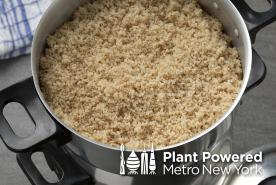Last updated: November 10, 2025
Medically reviewed by: NKF Patient Education Team
Kidney function naturally declines with age, especially after sixty years of age. Learn how aging impacts kidney health, risks, symptoms, and steps to stay healthy.
As people get older, their kidneys naturally go through changes. The kidneys may become smaller in size and lose some of their filtering units (called nephrons). This can make them less efficient at removing waste and extra fluid from the blood.
These changes happen slowly and are part of normal aging. Not everyone will develop kidney disease, but the risk increases with age. People over sixty years of age are more likely to have reduced kidney function, especially if they also live with health conditions that affect the kidneys, such as:
- High blood pressure (hypertension) – the leading cause of kidney disease in older adults.
- Diabetes – high blood sugar over time can damage the kidney’s filtering system.
- Heart disease – poor heart function can reduce blood flow to the kidneys.
Other age-related factors can also affect kidney health:
- Blood vessel changes – blood vessels stiffen with age, which may lower blood flow to the kidneys.
- Medication sensitivity – older kidneys may process medicines more slowly, making them more vulnerable to damage from certain drugs.
- Slower recovery – kidneys in older adults may take longer to heal after illness, dehydration, or injury.
Because these changes can happen without symptoms, many people do not know they have kidney disease until it is advanced. For this reason, routine kidney check-ups with simple blood and urine tests are recommended for adults over sixty years of age, especially those with other risk factors.
Why it matters
Understanding how aging affects the kidneys is important for both patients and doctors. Kidney disease often develops slowly and without clear symptoms in the early stages. Many older adults may not realize their kidneys are at risk until the disease is more advanced.
When kidney problems are found early, steps can be taken to slow or even prevent further damage. These steps may include controlling blood pressure, managing blood sugar, adjusting medicines, and making healthy lifestyle choices. Early treatment can:
- Prevent complications such as fluid buildup, anemia, weak bones, and heart problems.
- Reduce hospital stays caused by sudden kidney injury from illness, dehydration, or certain medications.
- Help avoid or delay dialysis or transplant by keeping kidney function stable for as long as possible.
- Improve overall quality of life by helping older adults stay active, independent, and healthier for longer.
Regular kidney check-ups, especially for people over sixty years of age with high blood pressure, diabetes, or heart disease, make it easier to detect problems before they become serious.
How aging impacts the kidneys
The kidneys are made up of tiny filtering units called nephrons. Each kidney contains about a million nephrons at birth, but the number and function decline naturally with age. As this happens, the kidneys may not filter blood as efficiently.
Other common age-related changes include:
- Stiffening of blood vessels – Blood vessels in the kidneys and throughout the body can harden with age. This reduces blood flow, which can limit how well the kidneys remove waste and balance fluids, minerals, and electrolytes.
- Decreased concentrating ability – Older kidneys may have trouble conserving water, which makes dehydration more likely.
- Slower response to stress – When faced with illness, surgery, or sudden changes in fluid balance, the kidneys may take longer to recover.
- Increased sensitivity to medications – Many drugs, such as certain antibiotics, blood pressure medicines, and pain relievers, are filtered through the kidneys. Aging kidneys may not clear these medicines as quickly, increasing the risk of side effects or kidney injury.
- Reduced hormone production – The kidneys help make hormones that regulate blood pressure, red blood cell production, and bone health. With aging, these functions can also decline, leading to anemia, bone disease, or blood pressure changes.
While these changes are a normal part of aging, they can make older adults more vulnerable to kidney disease, especially if other health conditions are present.
Conditions linked to aging and kidneys
As people get older, they are more likely to develop health conditions that affect kidney function. Some of the most common include:
- Chronic kidney disease (CKD): CKD becomes more common after age sixty years of age. It develops slowly over time and often has no symptoms until it is advanced. Regular testing is the only way to know if your kidneys are affected.
- Acute kidney injury (AKI): AKI is a sudden loss of kidney function that can happen more easily in older adults. Triggers include dehydration, severe infections, certain medications, or surgery. While AKI can sometimes be reversed, it raises the risk of later developing CKD.
- High blood pressure (hypertension): As people get older, blood pressure often increases. Over time, high blood pressure can damage the small blood vessels in the kidneys. This makes it harder for the kidneys to filter waste and extra fluid from the body.
- Diabetes (type 2 diabetes is most common in older adults): Many older adults develop type 2 diabetes. High blood sugar over many years can injure the kidney’s tiny filters. This is one of the leading causes of chronic kidney disease and kidney failure.
- Heart disease: The heart and kidneys are closely connected. If the heart is weak, it may not pump enough blood to the kidneys, making kidney problems worse.
Having more than one of these conditions at the same time, such as high blood pressure, diabetes, and heart disease, further increases the risk for kidney damage.
Staying healthy
Although aging cannot be stopped, there are many ways to protect your kidneys and overall health as you get older. Healthy habits and regular check-ups can make a big difference in slowing kidney damage and preventing complications.
Steps to protect your kidneys include:
- Control blood pressure: Aim for the range your doctor recommends. High blood pressure is a leading cause of kidney disease.
- Manage blood sugar: If you have diabetes, keep blood sugar in your target range to protect the kidneys.
- Eat a balanced diet: Choose more fruits, vegetables, whole grains, lean proteins, and healthy fats. Limit salt (sodium), added sugars, and processed foods. A kidney dietitian can provide personalized guidance if needed.
- Stay active: Aim for at least 30 minutes of activity most days, such as walking, swimming, or light strength training. Exercise supports heart and kidney health.
- Avoid smoking: Smoking damages blood vessels and increases the risk of kidney and heart disease. Quitting helps at any age.
- Limit alcohol: Too much alcohol can raise blood pressure and harm the kidneys. Moderation is key.
- Stay hydrated: Drinking enough water helps kidneys filter waste but check with your doctor if you are on fluid restrictions.
- Get regular check-ups: Blood tests (creatinine, eGFR) and urine tests (albumin) can track how your kidneys are working. Ask your doctor how often you need these tests.
Taking these steps can help you stay active, independent, and healthier for longer, even if you have early kidney disease.
Keeping Your Kidneys Safe as You Age
As kidneys age, they become more vulnerable to injury and less able to bounce back after illness or stress. Older adults should be especially mindful of risks that can harm the kidneys.
- Medications: Many drugs are processed through the kidneys. Older kidneys may not clear them as well, which can lead to harmful buildup. Medicines to watch include:
- Pain relievers such as nonsteroidal anti-inflammatory drugs (NSAIDs) like ibuprofen and naproxen
- Certain antibiotics
- Contrast dyes used in medical imaging tests
- Some blood pressure medicines, if not carefully monitored
- Dehydration: With age, the sense of thirst often decreases, and kidneys lose some ability to conserve water. Even mild dehydration can lead to kidney injury.
- Infections: Urinary tract infections (UTIs) and other infections can stress the kidneys more in older adults.
- Hospital stays and surgery: Changes in blood pressure, medications, and fluids during hospitalization can raise the risk of acute kidney injury.
- Falls and injuries: Physical stress or trauma can also affect kidney function, especially if combined with blood loss or dehydration.
Safety tips:
- Always talk with your doctor before starting new medicines or supplements.
- Let every healthcare provider you see know if you have kidney disease or reduced kidney function.
- Ask if tests or treatments could affect your kidneys and whether safer alternatives are available.
- Stay alert for swelling, fatigue, changes in urination, or confusion, these may signal kidney problems.
Additional considerations
Kidney changes related to aging often happen silently. Many people do not notice any symptoms until kidney disease is in a later stage. That is why awareness and routine testing are so important for older adults.
- Silent progression: Kidney disease can advance without pain or obvious warning signs. Fatigue, swelling, or changes in urination often appear only when the disease is more advanced.
- Screening is critical: Simple tests, such as a blood test for estimated glomerular filtration rate (eGFR) and a urine test for protein (albuminuria), can detect kidney damage early. The National Kidney Foundation recommends that all adults over age sixty years of age get checked.
- Multiple health conditions: Many older adults live with more than one chronic condition (for example, diabetes, high blood pressure, and heart disease). Together, these conditions place added strain on the kidneys. Coordinated care among doctors is important to balance treatments and prevent harm.
- Medication management: Because older adults often take multiple prescriptions, careful monitoring is needed to reduce the risk of drug interactions or kidney-related side effects.
- Nutrition support: A healthy eating plan tailored to kidney function can help older adults feel better and stay healthier. Referral to a kidney dietitian may be helpful.
- Advance care planning: For people with advanced kidney disease, it can be useful to discuss treatment options, such as dialysis, transplant, or conservative management, ahead of time. Having these conversations early helps ensure care matches personal goals and quality of life.
Questions for your healthcare team
Bringing questions to your appointments can help you better understand your kidney health and take an active role in your care. Here are some you may want to ask:
- Screening and monitoring
- How often should I have my kidneys checked?
- Which tests (blood or urine) will show how my kidneys are working?
- What do my test results mean for my overall health?
- Medications
- Are any of my current medicines hard on my kidneys?
- Do I need dose adjustments because of my age or kidney function?
- Are there safer alternatives to the medicines I’m taking?
- Lifestyle and daily health
- What changes can I make in my diet, activity, or daily habits to protect my kidneys?
- How much fluid should I drink each day?
- Are there over-the-counter medicines or supplements I should avoid?
- If kidney disease is diagnosed
- What stage is my kidney disease, and what does that mean for me?
- What steps can I take to keep it from getting worse?
- What treatment options should I know about now and in the future?
- Planning ahead
- If my kidneys get worse, what decisions will I need to make about dialysis, transplant, or other care?
- How can I prepare for those decisions now?

















